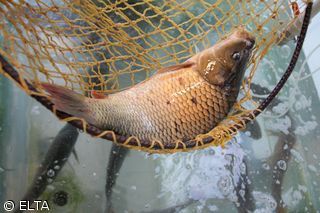The European Union and Russia have signed an agreement on steel supplies that introduces amendments to the 2002 accord
Published:
28 July 2004 y., Wednesday
The European Union and Russia have signed an agreement on steel supplies that introduces amendments to the 2002 accord that envisages an increase in the current quota for Russian exports to the EU. According to the press release of the Russian office in the EU, the quota has been raised by 438,216 tons.
Moreover, the sides agreed to start informal talks on defining quotas for 2005.
Šaltinis:
RBC
Copying, publishing, announcing any information from the News.lt portal without written permission of News.lt editorial office is prohibited.
The most popular articles
 The European Commission has decided to grant an extension of the deadline for the divestment of Fortis' corporate banking business, consisting of Hollandsche Bank Unie N.V. (HBU), two corporate client departments, 13 "Advieskantoren" and ABN AMRO's Dutch factoring activities to Deutsche Bank.
more »
The European Commission has decided to grant an extension of the deadline for the divestment of Fortis' corporate banking business, consisting of Hollandsche Bank Unie N.V. (HBU), two corporate client departments, 13 "Advieskantoren" and ABN AMRO's Dutch factoring activities to Deutsche Bank.
more »
 MEPs will vote on an emergency plan to help the crisis-stricken sector dairy sector on Thursday after the Agriculture Committee approved the Commission's proposal on Monday evening in Strasbourg.
more »
MEPs will vote on an emergency plan to help the crisis-stricken sector dairy sector on Thursday after the Agriculture Committee approved the Commission's proposal on Monday evening in Strasbourg.
more »
 The EBRD is boosting competition in the Montenegrin retail sector with a loan to expand the supermarket network of one of the leading retailers in the country.
more »
The EBRD is boosting competition in the Montenegrin retail sector with a loan to expand the supermarket network of one of the leading retailers in the country.
more »
 Redmond, Wash. — Oct. 16, 2009— On Oct. 19, Microsoft CEO Steve Ballmer heads to the sold-out Microsoft sharepoint Conference in Las Vegas where he will address more than 7,000 sharepoint customers, partners and developers.
more »
Redmond, Wash. — Oct. 16, 2009— On Oct. 19, Microsoft CEO Steve Ballmer heads to the sold-out Microsoft sharepoint Conference in Las Vegas where he will address more than 7,000 sharepoint customers, partners and developers.
more »
 Proposals tabled for collaboration on sea surveillance, bigger EU role in global maritime affairs and sustainable fishing.
more »
Proposals tabled for collaboration on sea surveillance, bigger EU role in global maritime affairs and sustainable fishing.
more »
 $50 million financing package for agricultural commodities operator.
more »
$50 million financing package for agricultural commodities operator.
more »
 Seeking to increase sheet-metal production volumes, Stansefabrikken decided to move all company’s production from Lillesand (Norway) to Stansefabrikken’s successfully operating factories in Lithuania.
more »
Seeking to increase sheet-metal production volumes, Stansefabrikken decided to move all company’s production from Lillesand (Norway) to Stansefabrikken’s successfully operating factories in Lithuania.
more »
 The European Economic and Social Committee (EESC) and the European Commission Representation in Finland jointly organise a conference in Helsinki on 22 and 23 October on "The Baltic Sea Region: the best place to work and do business".
more »
The European Economic and Social Committee (EESC) and the European Commission Representation in Finland jointly organise a conference in Helsinki on 22 and 23 October on "The Baltic Sea Region: the best place to work and do business".
more »
 Why did economy rise drastically turn into painful decline and what price will every of us have to pay for that?
more »
Why did economy rise drastically turn into painful decline and what price will every of us have to pay for that?
more »
 The economies of central and eastern Europe are expected to contract by an average of 6.3 per cent in 2009 following steep output declines in the first half of the year.
more »
The economies of central and eastern Europe are expected to contract by an average of 6.3 per cent in 2009 following steep output declines in the first half of the year.
more »